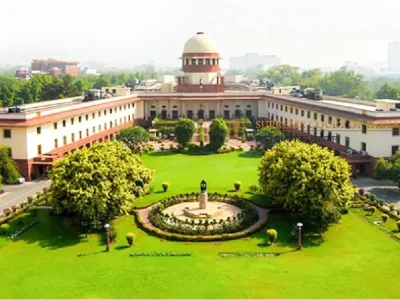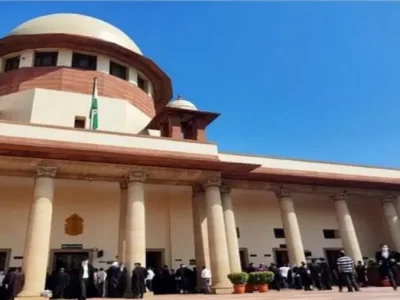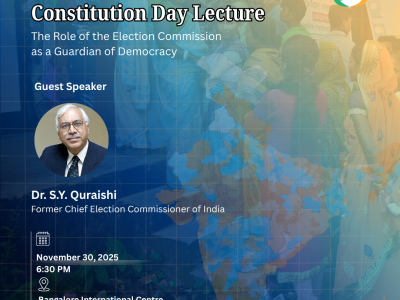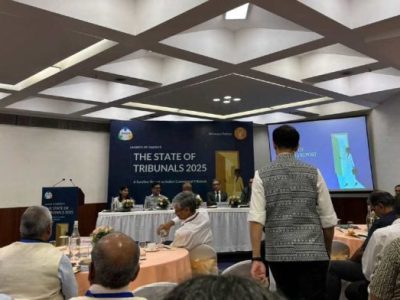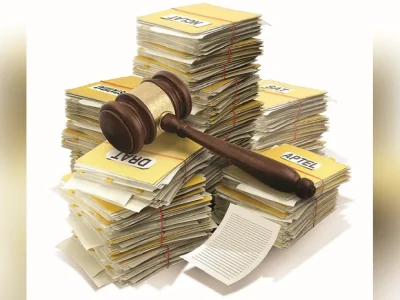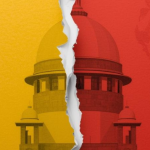ThePrintAM: What does research institute DAKSH’s report say about the state of India’s commercial tribunal system?
ThePrintAM: What does research institute DAKSH's report say about the state of India's commercial tribunal system?
Lessons for Judiciary from Space Sector
सारांश: इस लेख में सूर्य प्रकाश यह समझाने की कोशिश करते हैं कि कैसे भारत द्वारा अंतरिक्ष क्षेत्र में लाए गए सुधार, हमारी न्याय व्यवस्था के लिए भी एक मिसाल बन सकते हैं। उनका कहना है कि अगर हमें न्याय व्यवस्था का कायापलट करना है, तो हमें हर न्यायिक संस्था के काम में स्पष्टता लानी होगी, प्राइवेट सेक्टर को साथ लेना होगा और विशेष तकनीकी पद तैयार करने होंगे, बिल्कुल वैसे ही जैसे eCourts Phase III के विज़न डॉक्यूमेंट में परिकल्पित किया गया है।
The missing piece in India’s reform story—a strong tribunal system
The Supreme Court’s judgment pushes the conversation in the right direction, but it does not resolve the full range of structural issues that determine how tribunals work on the ground.
Fast-track courts may not be the cure
The Karnataka District Judiciary Reforms Bill 2025 is the most recent attempt at judicial reform in the state. In 2024, the legislature enacted amendments to the Civil Procedure Code (CPC), introducing case management hearings in district courts, bef...Read more at: https://www.deccanherald.com/opinion/fast-track-courts-may-not-be-the-cure-3816439
The Role of the Election Commission as a Guardian of Democracy | DAKSH Annual Lecture
DAKSH is excited to announce its Fourteenth Annual Constitution Day Lecture on 30 November 2024, at the Bangalore International Centre at 6:30 PM.
The guest speaker for the event is Dr. S. Y. Quraishi, Former Chief Election Commissioner of India.
OPINION | Trillions are stuck in disputes at commercial tribunals but reform agenda ignores it
India’s economic reform journey is a patchwork of contradictions. Highs such as GST 2.0, which promises to simplify compliance, widen the tax base, and smooth the arteries of commerce, are celebrated. Yet hidden lows continue to act as speedbreakers on India’s path to becoming a global ease-of-doing-business powerhouse.
Reform or redundancy? A breakdown of DAKSH report on state of commercial tribunals in India
New Delhi: Ideated as special adjudicatory bodies to review administrative decisions, tribunals across sectors have expanded their powers beyond the ambit of administrative laws. The expectation was that the commercial tribunals would deliver better outcomes than traditional courts. However, in practice, they struggle with the same problems.
Why India’s commercial tribunals need reforms—few judges with domain expertise, executive control, delays
Tribunals have distinct problems compared to courts, such as the need for more judges with specialised or technical knowledge of the law, the necessity for faster and more economical methods of adjudication, and the lack of finality when it comes to their decisions, former Supreme Court judge Justice Shiva Kirti Singh said Thursday.
Reforming tribunals: Rising vacancies at the top are hampering efficiency
Tribunals were set up to offer swift, cost-effective, and decentralised resolution to legal disputes. The principal idea was that these quasi-judicial bodies would comprise members with specific sector expertise to deliver better-informed judgments relatively swiftly, reducing the caseload on regular courts. It is deeply concerning, therefore, to discover that India’s commercial tribunals in particular suffer from the same infirmities as the regular judicial system.
Commercial tribunals’ case backlog ties up 7.5% of India’s GDP: Study
India’s commercial tribunals are grappling with a mounting backlog of 356,000 cases, worth ₹24.72 trillion, as of September, according to a study by legal think-tank DAKSH. The value of these pending cases amounts to about 7.48 per cent of India’s gross domestic product (GDP) for 2024-25, the think-tank estimates in its State of Tribunals 2025 report.


